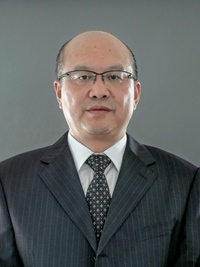Basic research
To solve the bottleneck problems in bio-based materials and chemicals synthesis, the center have carried out a series of works as following:
1. Sustainable and inexpensive raw materials
Glucose was usually used as the raw material for biosynthesis of materials and chemicals, resulting in high cost. We modified the relevant metabolic pathways of E. coli using synthetic biology methods, and a set of engineered strains were constructed and used for chemicals biosynthesis. They can metabolize inexpensive carbon sources such as fat, cellulosic hydrolysate, post-extracted algae residue, and so on. Based on these results, 2 papers were published and 8 Chinese invention patents were applied.
2. Technique design and development
For chemicals which are not natural metabolites of microorganisms, the de novo biosynthetic pathway design and construction were performed. For example, the biosynthesis of methylacetoin was first accomplished by reversing its biodegradation, which involved modifying the associated enzyme complex and coupling the process to an exothermic reaction. To improve the synthetic efficiency, systematic modifications including engineering of key enzymes in synthetic pathways, elevation of metabolic efficiency and growth of host cells, and establishment of genetically stable biosystem, were achieved, resulting in significant improvement of chemicals production. Due to the low titer and intracellular localization, the biobased products are hard to be purified and the separation process accounts for a large portion of total production cost. To deal with this problem, inducible cell lysis system and product secretion system were built up to release products from microbial cells. Integrated with on-line extraction unit, they greatly simplified the product separation process.
Additionally, the center developed some new methods for metabolic engineering, like in vitro assembly of multiple DNA fragments and temperature-inducible gene regulation system, which provide us a convenient way in strain development. In sum, the center successfully established the technology platform for biosynthesis of chemicals and materials, have published 11 research papers and applied 5 Chinese invention patents.
Applied research
Ton-scale pilot system has been built up for the fermentation and recovery of bio-phenols. In the pilot experiments, several hundred kilograms of bio-phenols have been produced with qualified purity (>99%) and feasible unit cost (one third of the cost by chemical methods).
